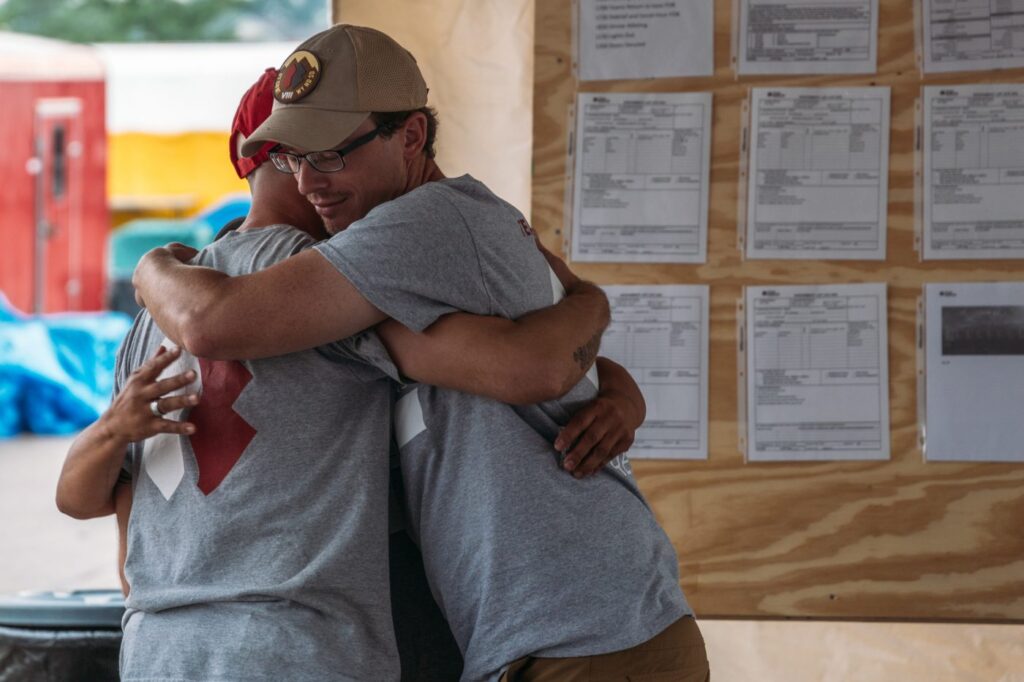Team Rubicon (TR) operations (ops) have a routine to them; you arrive at the site, are assigned to a strike team and then you go out to get shit done. This would have been like any other op except for the situation I found myself in.
On route to meet my team, I noticed a fellow volunteer sitting in the back of a truck. She had on the TR uniform; a gray T-shirt, blue jeans, and boots that told you she’s not afraid of getting dirty. She was courteous and pleasant, but something was off; maybe it was the tone of her voice, or the sad look on her face. She turned out to be my strike team leader and she had just learned the news of her best friend’s suicide.
What do you say to someone who’s going through the loss of their best friend? Situations like these are difficult because people are never prepared for them. Adding difficulty to these experiences are several misconceptions about how we are supposed to deal with them. Take the case of my team leader above, I could have thought it would be best to allow her to grieve alone. Maybe she should just keep busy, and as a good leader, she should also be strong for other people. Her friend has relatives who feel just as sad and need her support. All the above are unpractical ways for grieving a loss.

Getting through a loss is challenging because “all relationships are unique.” Therefore, having a peer or a guide can help us develop a path to follow. This path should be just as unique as the relationship. Resolving the loss doesn’t mean forgetting.
Take time to learn how someone feels about their loss to help guide what you say to them. Respect and kindness will have a lasting impression on them. As with many other difficult things in life, grieving is less of a challenge when someone others around them.
The TR wellness managers can serve as guides. They can recommend books like It’s Ok that You’re Not Ok and A Man’s Search for Meaning. They can connect the individual with organizations and resources like the Tragedy Assistance Program for Survivors (TAPS) and they can also facilitate introductions to therapists who specialize in helping those who are grieving.
Sometime later, I was glad to hear that my team leader was doing well. She is still grieving; however, she is finding ways to get through the pain. She has found support from her friends and family.



